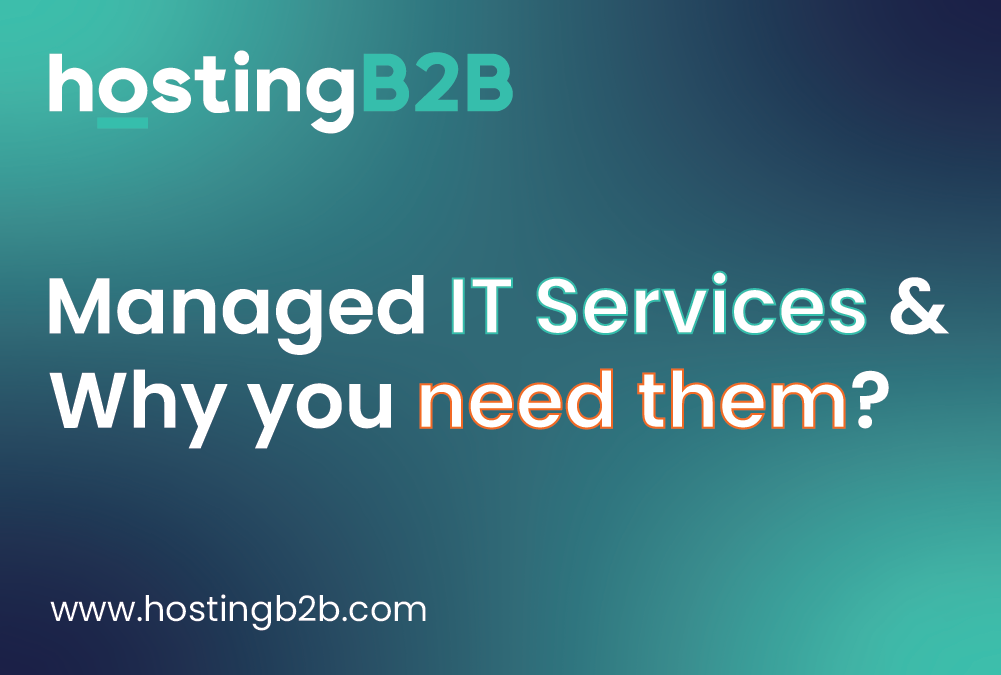
What Are Managed IT Services?
In today’s fast-paced digital world, businesses need reliable, secure, and scalable IT solutions to stay competitive. Managed IT Services refer to outsourcing your IT infrastructure and operations to a trusted provider, allowing your business to focus on core activities while ensuring optimal performance, security, and scalability.
At HostingB2B, we offer top-tier Managed IT Services to help businesses streamline operations, reduce costs, and enhance security. Learn more about our offerings here: Managed IT Services.
At HostingB2B, we pride ourselves in offering reliable, secure, and customizable Managed IT Services.
Discover how we can support your business growth.
Contact usThe Benefits of Managed IT Services
1. Focus on Core Business Operations
Managing IT infrastructure can be time-consuming and resource-intensive. Partnering with an MSP allows your internal team to concentrate on strategic goals rather than IT maintenance. Whether you need basic IT support or full-scale infrastructure management, HostingB2B offers flexible solutions tailored to your needs.
2. Access to Cutting-Edge Expertise
Technology is evolving rapidly, and staying ahead requires specialized skills. Our team of certified IT professionals provides proactive monitoring, security management, and system optimization, ensuring your business leverages the latest technology efficiently.
3. Cost-Effective IT Management
Hiring and training an in-house IT team can be expensive. With Managed IT Services, you get access to a team of experts at a predictable monthly cost, eliminating unexpected expenses while maintaining a robust IT environment.
4. Scalable IT Solutions
Business needs fluctuate, and IT resources must scale accordingly. With HostingB2B, you can scale up or down as needed, ensuring you always have the right resources available for your business growth.
5. 24/7 Support and Monitoring
Downtime can cost businesses thousands of euros in lost productivity. Our round-the-clock monitoring and support ensure that issues are identified and resolved before they impact your operations.
6. Enhanced Security & Compliance
Cyber threats are becoming more sophisticated, and businesses need robust security measures to protect sensitive data. Our Managed Security Services include firewall management, endpoint protection, and compliance monitoring to keep your data safe from cyber threats.
7. Disaster Recovery & Data Backup
Data loss can be catastrophic. Our backup and disaster recovery solutions ensure that your data is securely backed up and can be quickly restored in case of an unexpected event.oosing the Right Managed IT Services Provider
When selecting an MSP, consider the following:
- Flexible Service Models tailored to your needs.
- Proactive Monitoring & Maintenance to prevent downtime.
- Cybersecurity Expertise for data protection and compliance.
- 24/7 Support for uninterrupted business operations.
- Scalability & Cloud Solutions for future growth.
Round-the-Clock Support
Our certified experts are always available to resolve issues, ensure compliance, and maintain performance. For more information, contact our experts!







